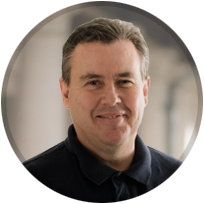By: Kenneth Samples | February 3, 2017
As the nonscientist on RTB’s five-person staff scholar team, I sometimes feel like the odd man out. Because I’m a philosopher, I often look at things and think about things very differently than my science colleagues. The questions that I tend to ask, even about science, usually inquire about things from a very different perspective. I typically gravitate toward asking more philosophically oriented questions that focus more on logical relationships than science’s emphasis upon observational relationships. Yet I recently came across a provocative analogy that I think helps to show the broadly common way that my science colleagues and I both seek to discover knowledge and truth.
Catholic philosopher Peter Kreeft draws this interesting comparison in his book on logic:
“Logic is one of philosophy’s main instruments. Logic is to philosophy what telescopes are to astronomy or microscopes to biology or math to physics. You can’t be very good at physics if you’re very bad at math, and you can’t be very good at philosophy if you’re very bad at logic.”1
Analogical Thinking
I view Kreeft’s comparison of the various instruments of knowledge and truth as functioning as a stimulating analogy.
Here’s that instrument to discipline comparison outlined. Logic’s relationship to philosophy is like:
- telescopes to astronomy
- microscopes to biology
- math to physics
In all of these academic fields it is possible to engage in the discipline itself without specifically using the instrument. For example, ancient people practiced astronomy long before the telescope was invented, and studies in biology went on for many centuries before the microscope was designed. Similarly, it is possible to observe the general effects of physics without the formal use of mathematics, just as a person can ask common sense philosophical questions about life without appealing to the formal aspects of logic. Even the great philosopher Aristotle, who is credited as the “father of logic,” referred to logic as a “tool” or “instrument” (Greek, organon). However, the use of these amazing instruments—whether actual artifacts (telescope and microscope) or pure conceptual realities (math and logic) discovered via the human mind—produces an increase in information and knowledge that is seemingly exponential. Both the amount of data and the depth of potential understanding is exceedingly increased by the use of the instruments. And the more skilled you are at using the instrument, the better you are in your given discipline.
It is very important to also acknowledge that logic’s relationship to philosophy is in another way profoundly unlike the other examples in the comparison. In a critical sense, logicians would insist that to significantly think, speak, and act requires an appeal to, and dependence upon, the laws of logic. Logicians have powerfully shown that the laws of logic are unique in that they are ontologically real, cognitively necessary, and irrefutable.2 Broadly defined logic is a tool of philosophy, but in a stricter sense, logic or the laws of logic make rationality itself possible. Astronomers, biologists, physicists, and philosophers all depend upon the laws of logic to make their lives and studies intelligible. So, like all analogies, this comparison has obvious limitations.
Lenses or Pathways
Another engaging way of thinking about Kreeft’s analogy is to consider replacing the word instrument with the words lenses or pathways. In a sense these apparatuses allow their users to see or envision whole new worlds or to open doors and pathways to new dimensions of understanding. For philosophers, the laws of logic serve to ground intelligible experience, and for physicists the universe seems written in, and explainable by, the language of mathematics. This equipment, or conceptual framework, allows for a transformation of human sight and comprehension. How incredible and valuable is that?
Thus, while there are times I feel my work as a philosopher is out of step with my science colleagues, this analogy helps me to keep in mind that as Christian scholars in very different disciplines, we are all using our prize instruments to hunt and gather the knowledge and truth that God has revealed in his infinite wisdom as Creator and Redeemer.
Endnotes
- Peter Kreeft, Socratic Logic: A Logic Text Using Socratic Method, Platonic Questions, and Aristotelian Principles, 3rd ed. (South Bend, IN: St. Augustine’s Press, 2010), 5.
- Peter A. Angeles,“Laws of Thought, The Three” in The HarperCollins Dictionary Of Philosophy: In-Depth Explanations and Examples Covering Over 3,000 Entries (New York: HarperCollins, 1992), 167.
This article was posted by permission from the author and can be found in its entirety at https://reflectionsbyken.wordpress.com.
 Kenneth Samples is the staff philosopher and apologist for Reasons to Believe (RTB). Visit RTB’s at http://www.reasons.org. Mr. Samples blogs at at “Reflections by Ken” at https://reflectionsbyken.wordpress.com. Mr. Samples has written several books including A World of Difference.
Kenneth Samples is the staff philosopher and apologist for Reasons to Believe (RTB). Visit RTB’s at http://www.reasons.org. Mr. Samples blogs at at “Reflections by Ken” at https://reflectionsbyken.wordpress.com. Mr. Samples has written several books including A World of Difference.
The views expressed by guests on Bellator Christi are those of the intended authors and may not represent those of Bellator Christi or its affiliates.
(c) 2017. Bellator Christi.





